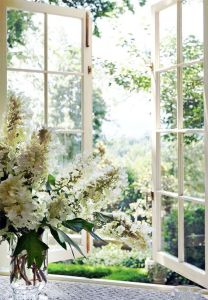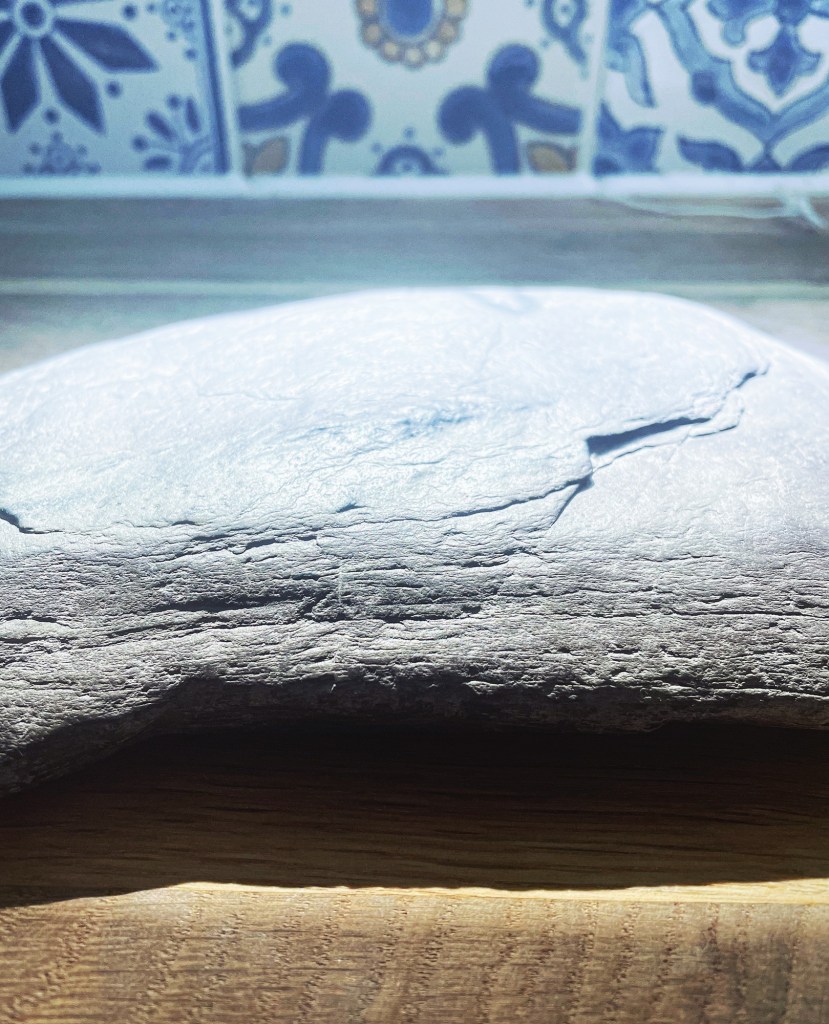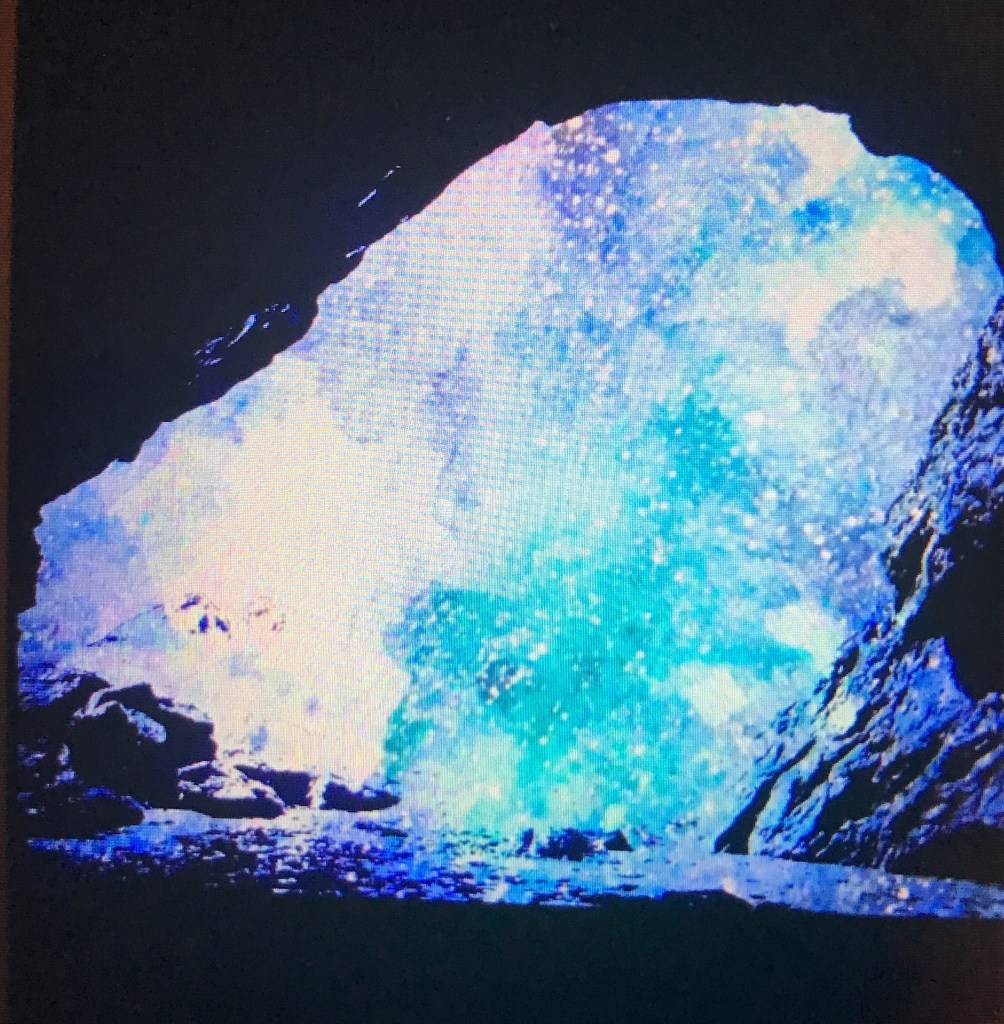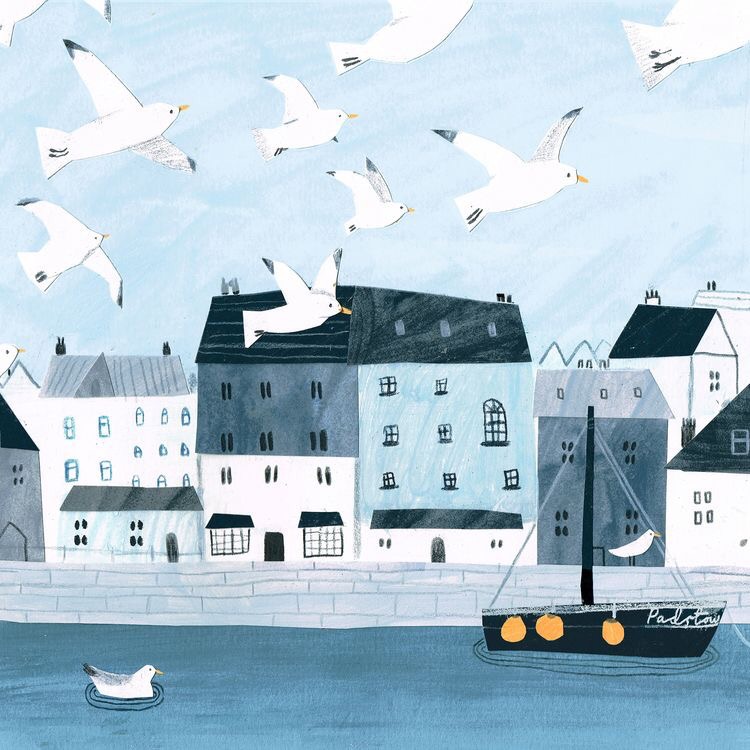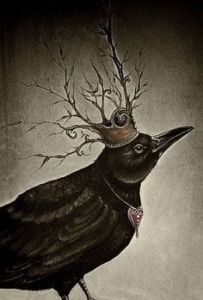
Ruby liked to dance, she liked to wear layers of skirts and things that jingled and she spun herself around. And if it was a Friday she would sing. Fridays were the days when she went into town and she allowed herself the luxury of visiting the Tiffin Tea Rooms. How the owner Mrs. Joyce would crinkle up her face when she came in and she’d sit by the window near the plastic flowers and stare out. Mrs. Joyce would bring the teapot over, always assam and ginger and a slice of sticky marmalade roll.
‘So, thank the good Lord for a Friday,’ she would say and wolf it down. The butchers would save her a rabbit and it lay on the slab out the back, by her string of sausages, plump and pink parceled up in greaseproof paper.
‘I’ve saved you a titbit,’ grinned Mr. Jarvis and she took it from his blood-stained hands.
‘See you next week,’ he called out as she left the stench of carcasses behind her. But it was Friday so she allowed herself to buy the wine, nothing too fancy, you understand, just something smooth with plum based notes, to sand down the edges of her day.
The Morris dancing had been going well, she’d joined the group when Angie in the Post Office pointed to the advert in the window just above,
Honda mower, runs well offers over £90.
‘You show ‘em, Girl,’ her Mother used to say, and she did. She danced as a child, she danced around her wedding bed and there, in the town square despite the pain in her back and the corns on her feet, she stomped and swayed and she beamed from the side-lines as her new friends mashed up the ground. Of course, the cramps came late at night, in her shins, after the hours of skipping but she was determined to do it.
I will do whatever it takes, she thought to herself, to be that dancer, I have to let this rhythm out. Her costume glinted and shone, made with care over months as she sat at her old singer sewing machine. Her Grandmother had left it to her and despite its age and outdated mechanisms, it purred and joined the rag-taggles of fabric to each other. She coated her hitting-stick in tar, till the smell of bitumen made her eyes water and before it dried out she rolled it in plastic jewels from her childhood jewellery box.
She remembered her friend, Lyn, whose new heart necklace had knotted up on itself and how she’d sat on the bed in her bedroom, picking at the chain with her slender fingers. She spent ages on it while Lyn came and went and bought cake in that her Mother had baked in the afternoon. Ginger cake, almost too spicy and when the knots gave way to her fingers, she ate the cake and Lyn cried. She thanked her and hugged her and told her they would be friends forever, but they weren’t.
The jewels burned out of the blackness like fragments of hope and she twirled it in her hands and the costume ruffled as she climbed inside and hid away under the headdress. She had constructed it from her favourite hairband with a tangled mess of wool and wire, feathers thrown in, here and there, ones she’d bought from the craft shop by the river but mostly the ones from the park, on her walks, where she pinched them up from the earth or found them under bushes and she brushed the soil from their softness and combed them back into shape when she got home.
She felt such a power in her costume, as though all the times in her life when she’d felt fragile and broken, were just a dream, an aberration from the girl she used to be. And here in her kitchen, by the warming pot of stew, under the rosemary hanging up high, she felt so strange. And the strangeness took her by the hand to the mirror and the strangeness showed her her face, feathered and free, released from the old form as she nodded away to herself.
‘This will do fine, my dears,’ she said to her ornaments and cages of stuffed animals. Ruby ruffled her feathers, she opened the front door and sniffed the fresh air.
‘My dears, I do believe it’s time,’ and she climbed her spiral stone staircase in the corner of her lounge. The wall was cold like it always had been, the lumps of raw stone jutted out and she stroked them with her long fingers as she made her way upstairs. In the bedroom, her cheval mirror smiled back at her by her walnut dressing table with silver topped perfume bottles and photos of her cats. The once white lace doilies had turned to cream but their patterns were so intricate and in each thread, she heard a bird song, a calling from a distant beak and she glanced at them. It had been years since she used to iron them on a Sunday morning, to spruce up her room for the week but when she did, when the windows were open and the crows made themselves known, she would count. Ruby counted the threads that made the snowflake pattern and the picot edge framed the central star shape with nine tiny flowers.
Counting always helped to calm her down but she didn’t need to count today because now she had her feathers. She shuffled towards the arched window that flooded her small room with light. The window had been her reason for buying the property 48 years ago, how it filled her with joy, how even then it felt like a doorway to another world. She would sit for hours watching the sparrows hop from branch to branch as she made lace, as her fingers blurred the shuttle to and fro.
She stood in front of the window, shook her shoulders, making her feathers fluffle and shimmer and she was ready.
‘You know, my dears,’ she said to a room full of memories, to the ornaments and photos from her life.
‘You know, I am finally able to sing.’ She stepped forward, her white hands took the wrought iron handles of her windows and she pushed them down. They resisted, stiff with age and then gave in. The panes quivered as she forced them wide filling her bedroom with the smell of the countryside, with the thick scent of sheep and distant hum of traffic. Her garden had never looked so beautiful, the lupins swayed, the hollyhocks swirled like a bride on her first dance and the snowdrops turned their faces to the sun.
Ruby took a long deep breath, filled her lungs with hope and clambered onto the windowsill. She opened wide her arms, her wings rumbled and creaked and then she jumped.
‘I’m coming, my dears,’ she called and opened wide her beak, joyous notes spiralled out as flew up into the warm summer sun.
